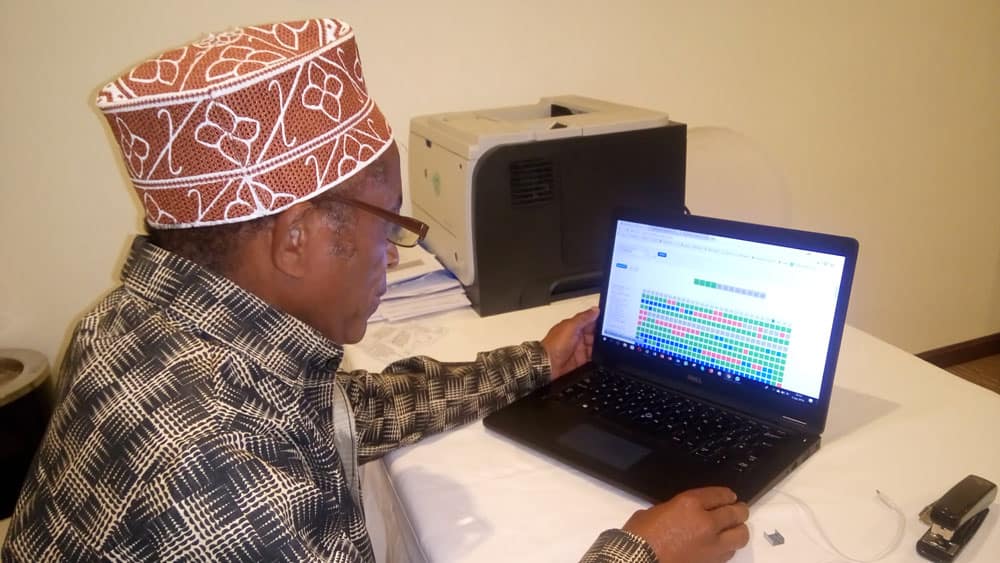You Can’t Manage What You Can’t See: Making Cold Chain Data Visible in Tanzania
May 25th, 2018 |
There is a relatively famous business adage that states, “You can’t manage what you can’t see.” Not everyone agrees with it completely, but from my experience with vaccine cold chain management in Tanzania, this is a case where it is absolutely true.
One of the most important things in managing vaccines is keeping them cold (between 2⁰ and 8⁰ C) to ensure that their quality, safety, and effectiveness is maintained. That’s not an easy thing to do in a big country like Tanzania which has more than 6,000 health facilities and over 200 district and regional vaccine stores. The situation is made more difficult by unreliable sources of power to run the refrigerators and outdated cold chain equipment in some places.
When I first started working as a pharmacist in 2013 with the Expanded Programme on Immunization (EPI), Ministry of Health in Tanzania, the standard way to monitor the temperature of the cold chain was using stem thermometers. Health workers would check the thermometers twice a day and record the information in the temperature monitoring log in hopes of catching any temperature excursions so as to be able to protect the vaccines. The thermometers weren’t terribly reliable or accurate, and the World Health Organization no longer recommends them for use.
The next technology to be introduced was 30-day temperature recorders. These recorders display the current temperature in the cold chain equipment and provide a rolling history of high-risk freezing and heat events for 30 days. It’s an improvement over the stem thermometers as it provides greater insight, but it still requires manually checking the equipment and reporting hot and cold alerts.
Thankfully, technology continues to advance and make our work easier. Recently, JSI, in partnership with Nexleaf Analytics, installed ColdTrace 5 (CT5), a remote temperature monitoring (RTM) device, in 120 vaccine storage sites across Tanzania, including health facilities and District Vaccine Stores. RTM solutions monitor the temperature of vaccine cold chain equipment in real time, send SMS alerts to health workers when temperature excursions occur, and provide valuable data and analytics to improve the overall cold chain.

Health workers now receive alerts on freezing and heat events and can take immediate action, for example moving the vaccines to different equipment, resolving minor problems such as closing the equipment door, or alerting the district level technician about a more complicated repair that may be needed.
However, CT5 is more than alerts; it is changing how we work. Seeing the performance of the fridge in real time allows for better management of the cold chain equipment and vaccines. The health workers are immediately alerted to a problem with the cold chain equipment. Their supervisors at the district level can see evidence on the dashboard that reinforces the information they receive from the health worker. Finally, the district manager’s supervisor can see when the issue has been resolved.
CT5 has improved accountability and enhanced decision-making at every level of the health system.There is a notable case of one refrigerator that was reporting consistent hot and cold alerts as soon as the CT5 was installed. Within two weeks, the district manager had arranged to replace the refrigerator with one that was more reliable. As simple as that sounds, that would not have happened a year ago without this technology. The next step is to expand this solution to reach up to 5,000 health facilities across the country to ensure that cold chain equipment is working well and the immunization system is effective.
Written by: Ngwegwe Bulula
*This post is the second in a series of blogs on JSI’s work in Tanzania. Read the first blog here: Using the Internet of Things to Manage Vaccines and Save Lives in Tanzania.
We strive to build lasting relationships to produce better health outcomes for all.